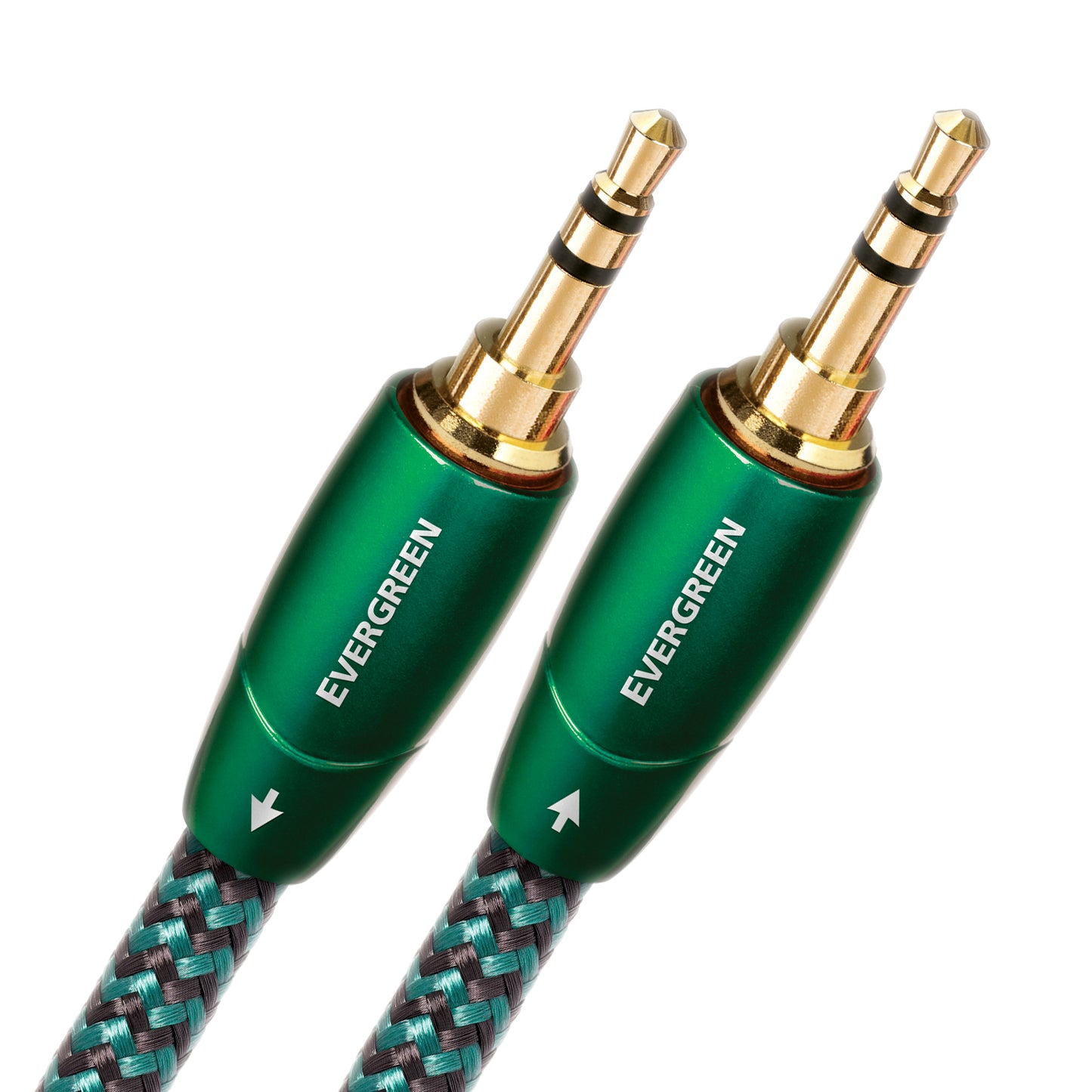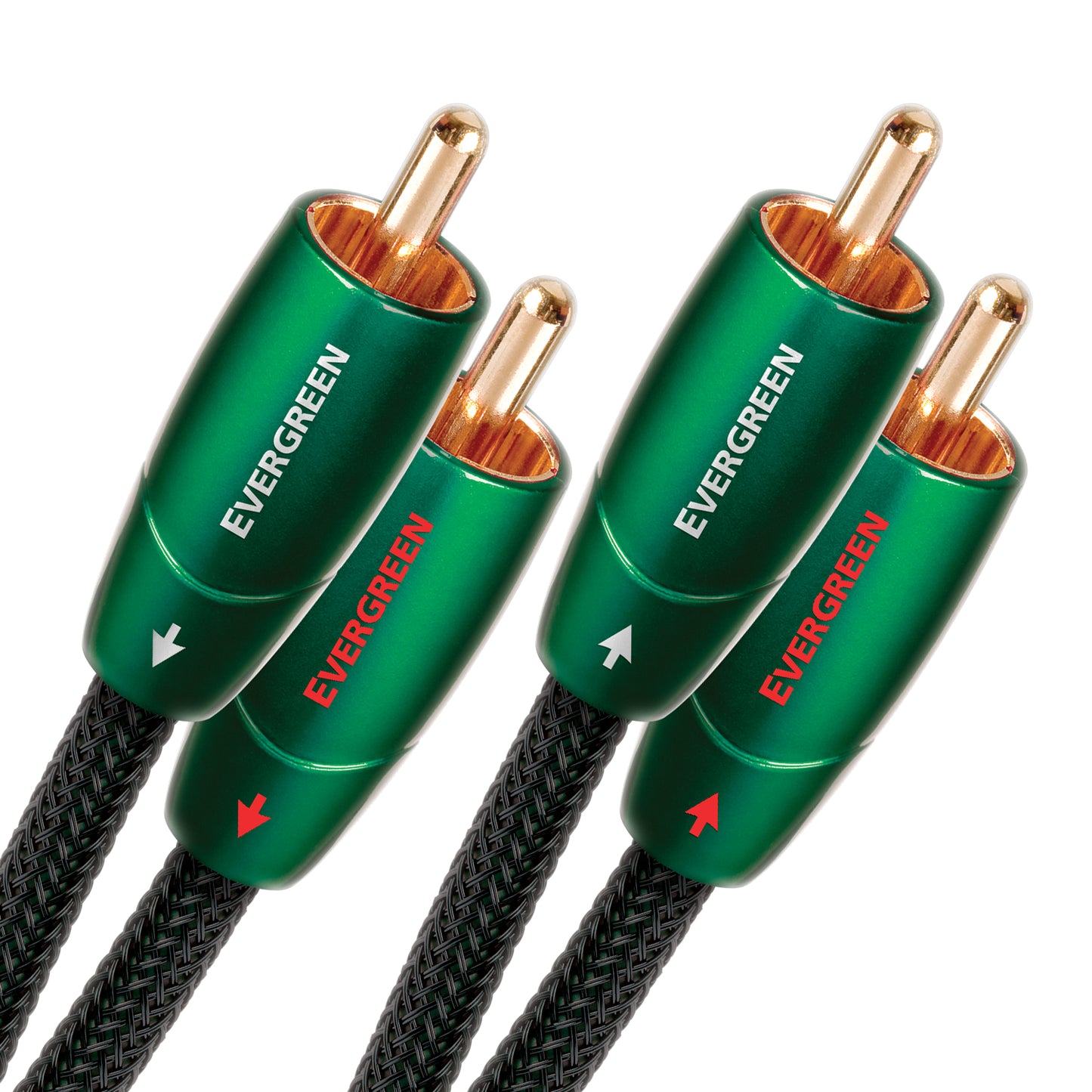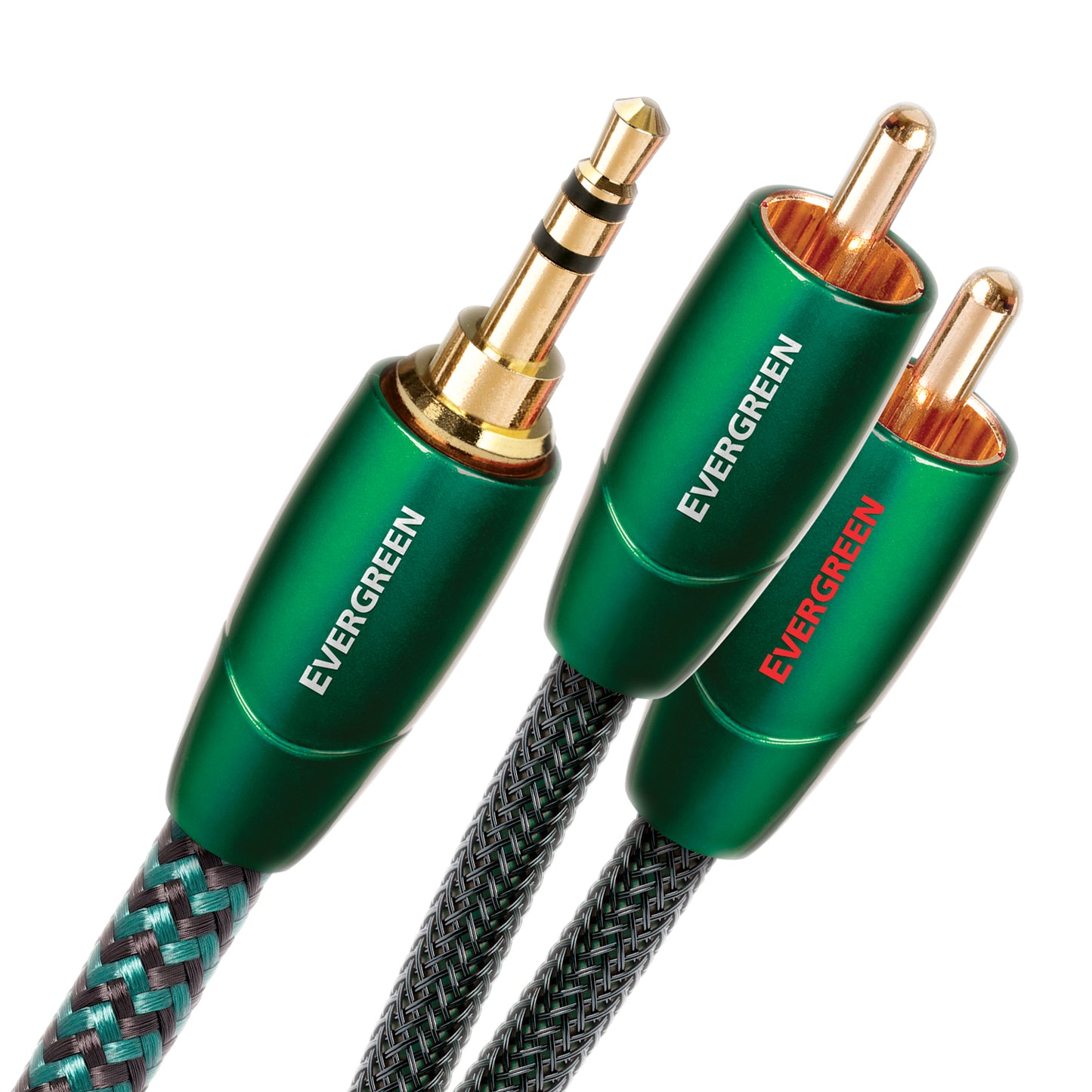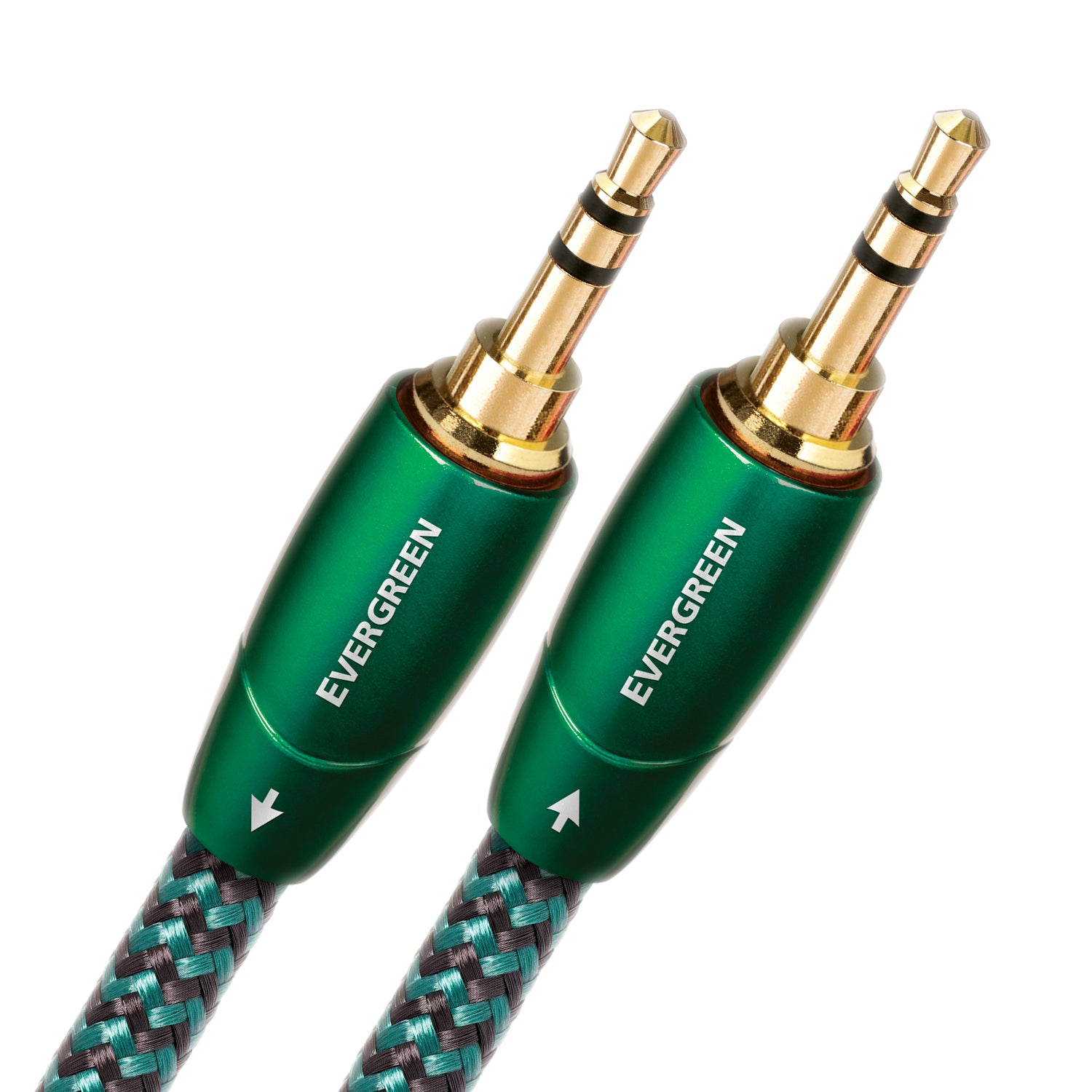AudioQuest
AudioQuest Evergreen
AudioQuest Evergreen
Couldn't load pickup availability
AudioQuest Evergreen
Analog-Audio Interconnect Cable named after the Evergreen Bridge that connects Seattle, Washington (USA) to the Bellevue area across Lake Washington.
SOLID LONG-GRAIN COPPER (LGC) CONDUCTORS: Solid conductors eliminate strand-interaction distortion. Evergreen’s solid Long-Grain Copper allows a smoother and clearer sound than cables using regular OFHC (Oxygen-Free High-Conductivity) copper. OFHC is a general metal industry specification regarding “loss” without any concern for distortion. LGC has fewer oxides within the conducting material, less impurities, less grain boundaries, and definitively better performance.
FOAMED-POLYETHYLENE INSULATION: Any solid material adjacent to a conductor is actually part of an imperfect circuit. Wire insulation and circuit board materials all absorb energy (loss). Some of this energy is stored and then released as distortion. Evergreen uses air-filled Foamed-Polyethylene Insulation on both conductors because air absorbs next to no energy and Polyethylene is low-loss and has a benign distortion profile. Thanks to all the air in Foamed-PE, it causes much less of the out-of-focus effect common to other materials.
METAL-LAYER NOISE-DISSIPATION SYSTEM (NDS): 100% shield coverage is easy. Preventing captured RF Interference from modulating the equipment’s ground reference requires AQ’s Noise-Dissipation System. Noise-Dissipation System prevents a significant amount of RFI from reaching the equipment’s ground plane.
ASYMMETRICAL DOUBLE-BALANCED GEOMETRY: Purpose designed for single-ended applications, Asymmetrical Double-Balanced Geometry offers a relatively lower impedance on the ground for a richer, and more dynamic experience. While many single-ended cable designs use a single path for both the ground and the shield, Double-Balanced designs separate the two for cleaner, quieter performance.
COLD-WELDED GOLD-PLATED RCA PLUGS: This plug design allows for a connection devoid of solder, which is a common source of distortion. Because the ground shells are stamped instead of machined, the metal can be chosen for low distortion instead of machinability.
Share




